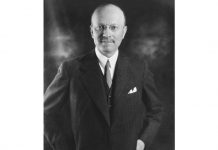When motor racing began, there were petrol-engined cars, steam cars, electric cars and hybrids. Pretty well much the same as today, other than steam, which has fallen by the wayside.
The first ever race was on April 28, 1887 organized by the chief editor of Paris publication Le Vélocipède, Monsieur Fossier. It ran 2 kilometers from Neuilly Bridge to the Bois de Boulogne and was won by Georges Bouton of the De Dion-Bouton company, in a car he had constructed with Albert, the Comte de Dion, but since he was the only competitor to show up it is rather difficult to call it a race.
The world’s first real motor-race was won by Georges Lemaître in his Peugeot 3 hp on July 22, 1894, when the Parisian magazine Le Petit Journal organized the first car race from Paris to Rouen. Pierre Giffard, the paper’s editor, promoted it as a Competition for Horseless Carriages (Concours des Voitures sans Chevaux) that were not dangerous, easy to drive, and cheap during the journey. Sporting events were a tried and tested form of publicity stunt and circulation booster. The same holds true today, as otherwise why is Mercedes Benz and Ferrari in Formula 1?
There was controversy even then, as Count Jules-Albert de Dion was first into Rouen after 6 hours and 48 minutes at an average speed of 19 km/h, but De Dion’s steam car needed a stoker which was forbidden. (We do make things difficult for ourselves, don’t we!)
Other vehicles at the turn of the century that were used in motor racing include the Lohner-Porsche Mixte, the first series-hybrid. Instead of a massive battery-pack, an internal combustion engine built by Daimler, was fitted to a generator to drive the electric hub motors and (for vehicle reliability) a small battery pack.
For this and many other achievements Prof. Dr. Ing. h.c. Ferdinand Porsche, in 1996 was inducted into the International Motorsports Hall of Fame and in 1999 posthumously won the award of Car Engineer of the Century.




